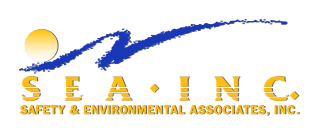NFPA 652: Dust Hazard Analysis Audits Coming Soon
OSHA Auditing Combustible Dust Hazard Analysis Program in 2021
All facilities that generate dust, and were required to meet the September 7, 2020 deadline must now comply with the requirements of NFPA 652. SEA can help you get ready for these audits!
- What is NFPA 652?
This National Fire Protection Association standard outlines the requirements for the management of fire and explosion hazards related to combustible dusts.
Updated from its previous version, the 2019 NFPA 652 requires facilities to complete a dust hazard analysis (DHA), demonstrate progress in completing a DHA in years leading up to the deadline, and continue to review and update the DHA every five years.
This standard is the go-to source for facility managers, inspectors, safety personnel, contractors and engineers for handling combustible dust safety in any industry.
- What is combustible dust?
NFPA 652 defines combustible dust as “a finely divided combustible particulate solid that presents a flash fire hazard or explosion hazard when suspended in air or the process-specific oxidizing medium over a range of concentrations.”
<Click Here for a free OSHA Combustible Dust Poster and List of potential materials>
- What is a DHA?
A Dust Hazard Analysis is a facility review that examines all areas where combustible dust is present. This analysis identifies hazards as related to explosions and fires. A DHA categorizes each area of the facility as Not a Hazard, Might Be a Hazard, or Deflagration Hazard. If any hazard areas are identified, the facility must define safe operating ranges, list any existing hazard management methods, and identify additional options to consider for future hazard management.
- Who must meet this standard?
NFPA 652 pertains to all industries that include processes that can generate combustible dust, although it specifically addresses the metal, agricultural, chemical and wood processing industries. According to OSHA, the risk of combustible dust explosions is present in a wide range of industries, including those that process food, grain, tobacco, paper, rubber, dyes, plastics, pesticides, metals, pharmaceuticals and pulp
- Who is qualified to perform a DHA?
NFPA 652 states that the DHA shall be performed by a “qualified person”. The leader of the DHA should be highly knowledgeable in the hazards related to combustible dust as well as the process which is being observed.
With over 25 years of knowledge and experience in hazard analysis and Industrial Hygiene, SEA can help you with your DHA needs.
